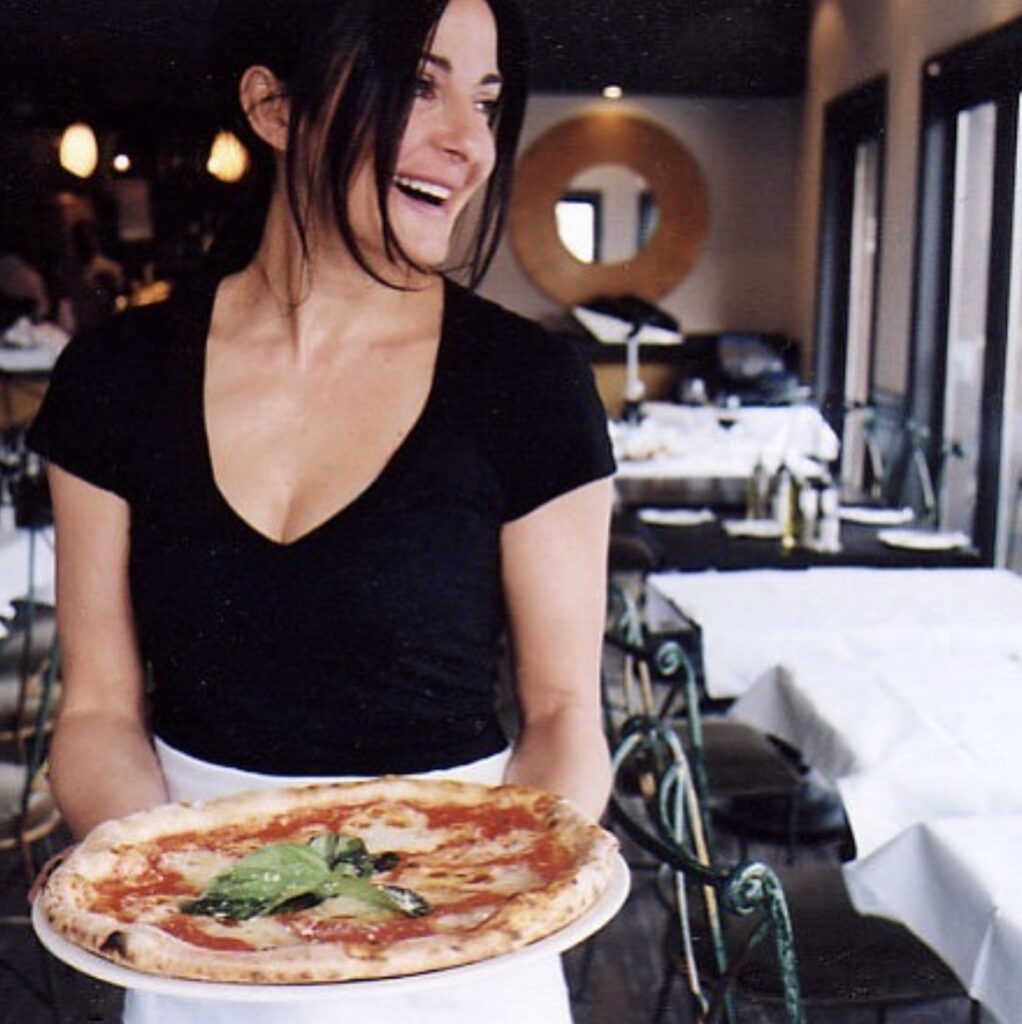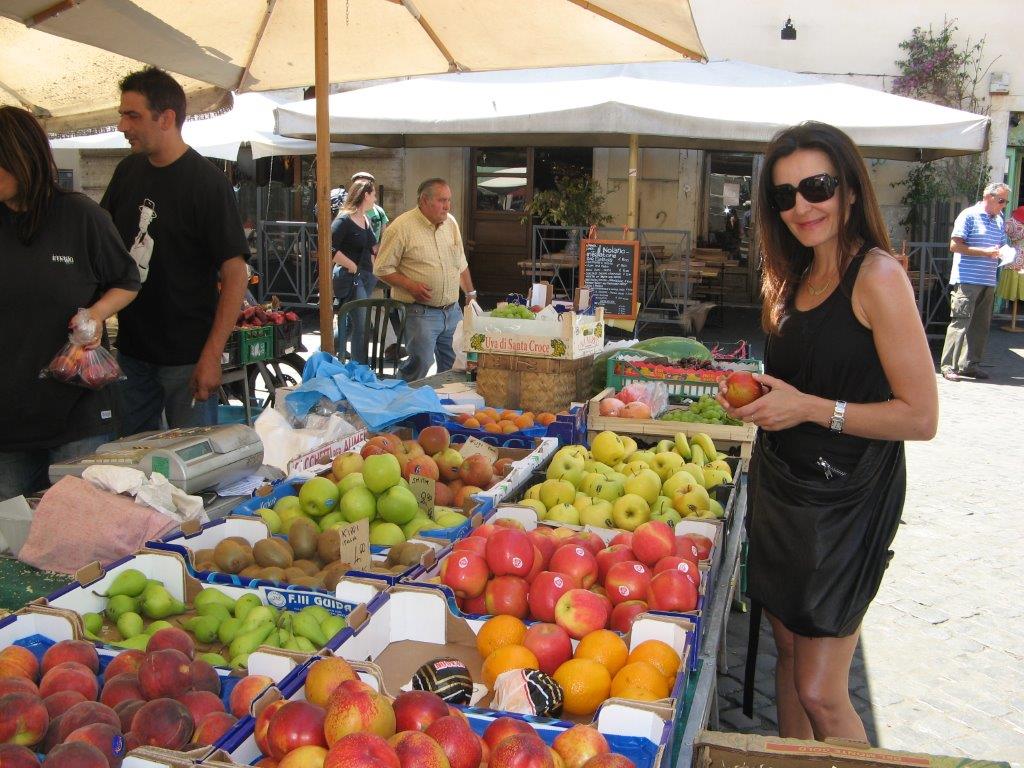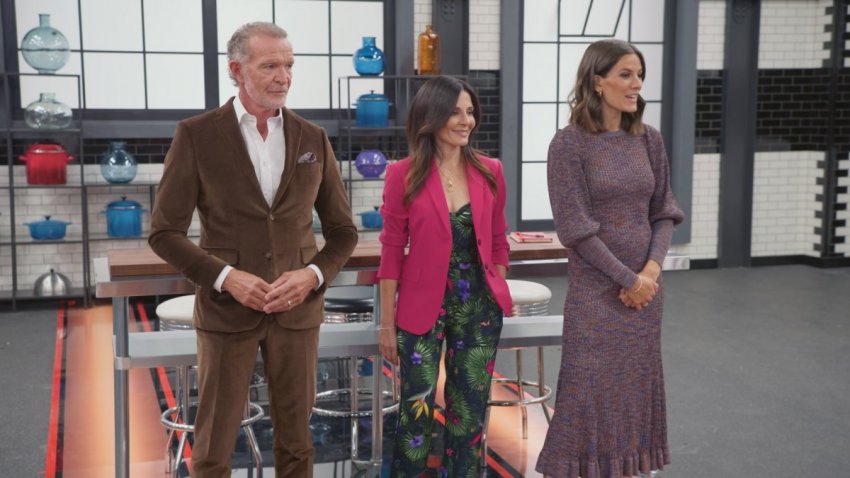Inside a tiny, yellow house on the corner of Yorkville Avenue and Bellair Street in Toronto, you’ll find a cozy restaurant serving up southern Italian dishes made with love. Since 1996, restaurateur and trailblazer Janet Zuccarini has been at the helm of Trattoria Nervosa. Here, diners are made to feel like a member of the family, feasting on an array of pizza and pasta dishes that have a ‘home-cooked’, yet refined feel.
This quaint spot was the catalyst behind the formation of Gusto 54 Restaurant Group. Since then, Janet Zuccarini has gone on to not only become a powerhouse in the industry behind an international restaurant empire but to also be the recipient of numerous accolades. She is the first Canadian woman to become an Associazione Verace Pizza napoletana (AVPN) certified Pizzaiolo (a status granted by the Italian Standardization Body to protect and maintain Neapolitan pizza making traditions and customs), a resident judge on Top Chef Canada and was the 2019 recipient of Businesswoman of the Year by ICCO Canada.

We sat down with Janet Zuccarini to talk about how her childhood and time living in Rome influenced her culinary perspective and defying expectations in a male-dominated industry.
The average lifespan of a restaurant is around 7 years — how does it feel to have recently celebrated Trattoria Nervosa’s 25th anniversary?
We have a lot of reasons why we’re there 25 years later, and I think it’s absolutely amazing. It’s a testament to many things — having a great team, being at the corner of Yorkville and Bellair (which is one of the best corners in Toronto), and having patio space. It’s a little money-making machine. Out of all the [Gusto 54 Restaurant Group] restaurants, Trattoria Nervosa does the most per square foot. It’s got a tiny kitchen, and it pumps out a lot. Pre-COVID, on average in that tiny 120 seat space, we do 800 to 1000 people a day in that tiny little house. So it’s incredible.
What were your goals when you first opened up shop in Yorkville? Did you ever imagine you’d be at the helm of a restaurant empire?
Definitely not. I was pretty fresh out of university, thinking about what I was going to do with my life. After eight years of living in Rome, I really had this connection to food and eating well, which actually started at home for me as a child. My friends would always say I needed to open up a restaurant, but that was not on my radar. Trattoria Nervosa came about as a result of me just walking by and meeting my eventual partners. Two weeks later I was in the restaurant business. I didn’t know then, but I ended up marrying two passions: entrepreneurship and food. I worked around the clock to keep my head above water while learning about a business I knew nothing about. Eventually, I ended up buying out the partners and I became the sole owner. That was an amazing step in my life because it was a terrible partnership. I could really start thinking for myself and about good business moves. I set my sights on saving money, so I could buy the location after leasing it for 10 years. Once I felt that my foundation was a lot stronger, I was open to the idea of starting a new restaurant. Other opportunities started presenting themselves, and at a certain point, I was ready to grow outside of Toronto — that’s how Felix [in Los Angeles] happened. Being a woman going into LA, which is a tough town, a lot of people doubted me. We’ve gotten some of the most incredible accolades that we’ve ever received — Esquire Magazine named us the best new restaurant in America. So we’re very proud of what we have done.
You’re the first woman in Canada to become an AVPN certified Pizzaiola. What led you to pursue that certification?
In Italy, no woman ever makes a pizza. It’s a very serious job; the hospitality industry is treated as a career. In North America, it’s a lot of peoples’ interim to what they’re going to really be doing in life. Like [they are] an actor, serving tables. When I went to get certified in Naples, I was then placed in a pizzeria. Every customer that would walk in would say ‘she better not make my pizza, I’m not going to accept the pizza made by a woman,’ and I had to ask them to give me a chance. I’d tell them ‘if you don’t like it, it’s on me,’ and prove myself. AVPN certification is the gold standard of how to make a Neapolitan pizza in a wood-burning oven. At Trattoria Nervosa, we were having inconsistencies with the pizza I couldn’t solve. Making a pizza is art meets science because you’re essentially baking. Yeast responds to the elements, so on a cool day, you have to let your pizza dough rise more. So though we’re not making it like they do in Naples, we are more consistent.
Women are underrepresented in the restaurant industry. What was it like back when you were first starting out?
Back then I wasn’t thinking about that. My father, who always wanted boys, ended up having three daughters. I felt that I was brought up like the son that he never had, in that he wanted me to believe I could do anything. He brought the first espresso machine to Canada in 1954, so he really started coffee culture here. He taught me how to repair the machines, and he would be like, ‘Get on the other side, you’re picking this up, you can do it,’ and it’s like, a massive, three-group, all brass espresso machine. That helped me feel I could take on anything and not be confronted with the fact that I was a female in a male-dominated industry. Globally, female owners and female executive chefs represent only five per cent of the industry. We’re so underrepresented, right? But I never thought about it.

Even today, there are so few women in leadership roles in the restaurant industry. What work needs to be done to help change that?
I think it starts with inviting a lot more women into the industry. It’s going in that direction, we’re seeing a lot more females in leadership roles. Within my company, the president is female, and our chief culture officer is female. Sometimes people ask ‘oh, you have quite a few females on your team, is that because you’re a woman?’ — no! I would never choose someone because they are a woman. I’m looking for the best person for the job, but I am not afraid to hire a woman.
Gusto 54 Restaurant Group is known for its honest approach to Italian cuisine: how do you innovate while maintaining important traditions?
Every restaurant has their own story and is dialled into what that business is trying to achieve. If it’s a volume restaurant, we approach things differently. In writing the menu, I write out a lot of salads because people have dietary restrictions — I’m coined for bringing the first kale salad to Toronto. It’s not how they eat in Italy, so we’re bending the rules there because I want to give people what they want, [but] we still offer things done in a very traditional way. Felix is very, very authentic. In LA, there was a gap with Italian restaurants, which was such a shock to me. That provided an opportunity for something that’s authentic but relevant.
You lived in Rome for eight years — how did that influence your culinary perspective?
Living in Italy was huge. The farm-to-table way of eating, it’s the only way you eat in Italy. I was there when the McDonald’s opened at the Spanish Steps and they [were protested]. That became the slow food movement. Nonnis would cook pasta in the middle of the piazza saying ‘this is our fast food’.
Also, my father was from just outside of Rome and I had relatives living outside of Rome. But I chose Rome because I just fell in love with the city. Sometimes you land in certain places, and it feels like home, other places you visit.

In North America, we have these huge fridges and freezers, packed with food. In Italy, you have a small little fridge, because you shop every day. I would just walk home from school and get my few little ingredients and cook things fresh. And everything is seasonal and local. Tasting food that was allowed to ripen on the vine was such a different experience for me. Hospitality was such a natural fit for me — if I can offer that little joy, then that is something I connect to.
With your numerous accomplishments, it’s no surprise you were named as a judge on Top Chef Canada. What does it mean to you to be in such a prominent role in the food space?
It was an honour to be asked to be on the show. And I think it’s important for me in what I do, to take that on because it’s a great opportunity. To have a voice as a female restaurateur — it’s important. I ended up serving one of the guys on the show at Gusto 54, and I was like, ‘we need a Canadian woman on the show’. And he’s like, ‘Yeah, but like, we don’t know of anyone,’ while sitting at my restaurant. Being visible in these roles gives permission for people who aspire to these roles.

Lastly, carbonara, cacio e pepe, or Amatriciana?
Amatriciana! Always my favourite pasta — if I had to choose a last meal that would be it, I don’t even have to think about it. This was my Nonna’s recipe that was my father’s favorite to cook and he taught my mother how to make it. I grew up with that being my favourite pasta, and I think we really connect to food that we loved in childhood that is connected to family.



Add a comment